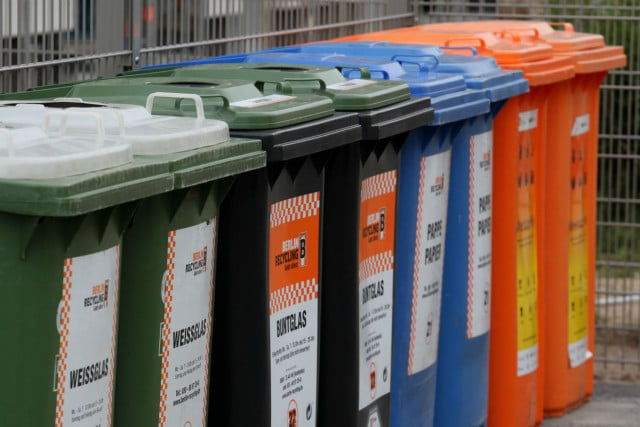Even if you can’t quite decide whether life in Switzerland is better or worse than in your own country, you can at least agree that many things here are, well, different.
What might be a common practice elsewhere may not exist in Switzerland (or exist to a limited extent) — and vice versa.
Let’s have a look.
Strikes
A headline in our sister publication, The Local Germany, is a good example of how different things are across the border: Where are public transport strikes taking place this week in Germany?
In fact, publishing schedules of imminent strikes is a ‘thing’ in Europe, where such walkouts are very common occurrences.
Not so in Switzerland.
It is not that employees NEVER go on strike here, because they do.
However, in comparison with other nations, such industrial actions are relatively rare in Switzerland.
Chalk it up to the non-confrontational nature of Switzerland’s population, or the role that collective labour agreements play in guaranteeing employees’ rights — or both — but, unlike its neighbours, the Swiss don’t have a ‘strike culture.’
READ ALSO: Why does Switzerland see very few strikes compared to France or Germany?
Lively Sundays
Not many foreigners (if any at all) say that Sundays are statuary ‘quiet days’ in their countries where no noise, except perhaps that of crying babies, is permitted.

But if you have been living in Switzerland for a while, you know that Sundays are designated as rest days and noises such as those emitted by lawnmowers, hammers, or even bottles being thrown into a recycling bin, are strictly verboten.
READ ALSO: Six things you shouldn’t do on a Sunday in Switzerland
Speaking of recycling noises brings us to yet another point:
More relaxed trash practices
For sure, Switzerland doesn’t have a monopoly when it comes to proper waste management — many other countries practice environmentally-friendly trash disposal methods as well.
But leave it to the Swiss to micro-manage this process to the extreme.
The case in point is that you can get caught — and fined — if you throw out ‘wrong’ objects with the ‘regular’ garbage, rather than disposing of them in an appropriate bin.
You may be even more shocked to learn (hopefully, not through experience) that ‘garbage inspectors’ actually sift through your trash and will fine you if they discover something in there that wasn’t properly disposed of — as this foreign resident of Zurich has found.
READ ALSO: Why the Swiss government rummages through your garbage
Late shop closings
That, as you have noticed by now, is a rarity in this country.
If you enjoy doing your shopping after work, or later in the evening — as you used to do in your country — then Switzerland will disappoint on that score.
In fact, shops closing by 6:30 pm in most cities is one of the main complaints that international residents have about living here (along with retailers closing on Sunday).
Longer waits for doctor appointments and medical procedures
This is one of the areas where Switzerland trumps over others.
Because Switzerland’s healthcare system is private rather than government-run, residents get certain benefits — call it more ‘bang’ for their francs.
One of this system’s advantages is that, in terms of wait times for non-emergency doctor appointments and medical procedures, Switzerland beats many other countries.
According to an OECD survey on how long patients in various countries typically wait for an appointment with a specialist, the share of people in Switzerland waiting a month or more is 23 percent, compared to 36 percent in France, 52 percent in Sweden, and 61 percent in Norway.
READ ALSO : How long is the wait for medical procedures in Switzerland?
But there is also a flip side:
Healthcare that doesn’t break the bank
While other countries in Europe have some type of taxpayer-based health system, which means residents will pay no, or little, money for medical services, in Switzerland, where health insurance is obligatory, this is not the case.
Premiums increase each year, and eat up huge chunks of household budgets — though those unable to afford the payments, will typically get financial help from the government.
Do you have other ideas of things/practices that exist in foreign countries, but are missing in Switzerland? Let us know.



 Please whitelist us to continue reading.
Please whitelist us to continue reading.
Member comments